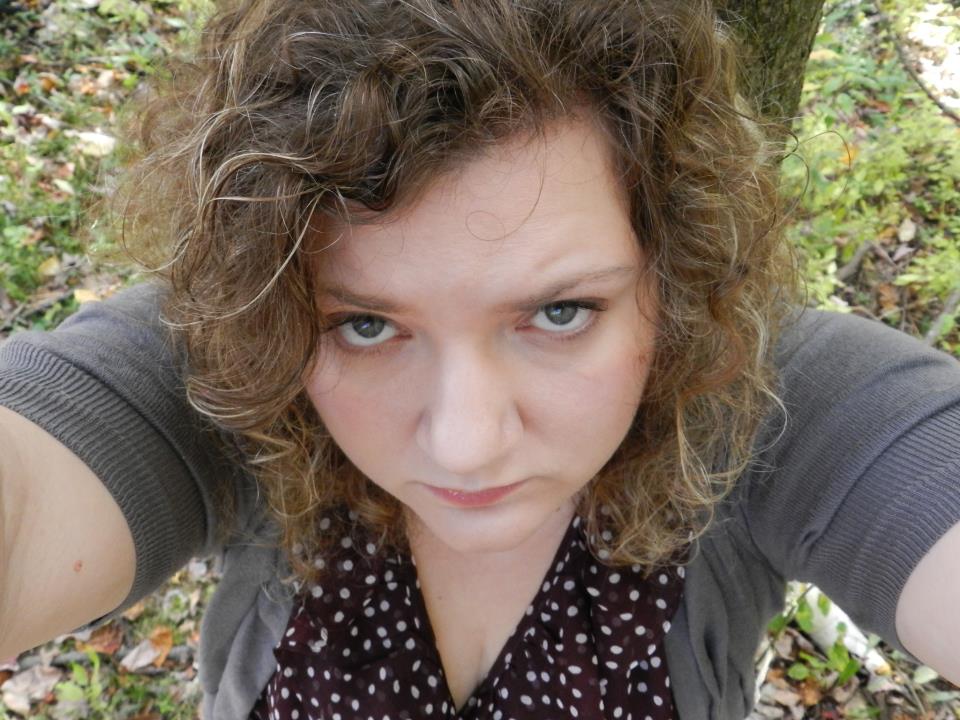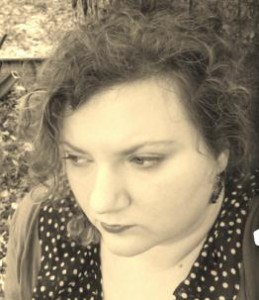 In my last Superstition Review blog post, I wrote about how to have the best possible experience at writer’s workshops and conferences. At that point in my life, I’d started branching out from the big conferences, like AWP, that can feel overwhelming, and finding smaller, more personal conference experiences that combined a little workshopping and a little craft. I still find great value in these experiences and attended the Kentucky Women Writers Conference this September for the first time in several years; however, what I’m coming to understand about myself, is that the most productive experiences for my writing–times when I can actually get the job done–are not conferences or workshops, but residencies and retreats.
In my last Superstition Review blog post, I wrote about how to have the best possible experience at writer’s workshops and conferences. At that point in my life, I’d started branching out from the big conferences, like AWP, that can feel overwhelming, and finding smaller, more personal conference experiences that combined a little workshopping and a little craft. I still find great value in these experiences and attended the Kentucky Women Writers Conference this September for the first time in several years; however, what I’m coming to understand about myself, is that the most productive experiences for my writing–times when I can actually get the job done–are not conferences or workshops, but residencies and retreats.
Of course, I am not saying anything revolutionary here. Writers and artists have been going to residencies and colonies for a century or more, communing with other artists, secluding themselves from the “real world” to create their craft. There is a certain romanticism that comes with thinking about places like Yaddo and McDowell. One imagines lots of champagne, and long walks, and beautiful people lounging around thinking deep and beautiful thoughts. There is a certain prestige connected to attending these colonies, and what writer doesn’t want to find themselves among the small and elite group accepted to the “best places”? Here is the truth, though: we aren’t all going to get there, for a variety of reasons. Another truth: just because these are the “best places” for some, does not mean they are the best for all.
In 2015, I decided I needed to see what this writer’s residence business was all about, and applied for entrance to the Virginia Center for the Creative Arts. VCCA is on a beautiful compound about six hours from where I live (so driveable) and not far from family members that live in Fredericksburg, VA (in case, you know, I break a limb or something). I am lucky enough that I could take two weeks in the summer and head to Amherst, VA (just outside Lynchburg). I was doubly lucky to receive a grant from the Mid-Atlantic Arts Foundation that paid for my stay.
I was assigned to a coveted location (though I didn’t know that at the time). I was in one of the apartment studios, so I slept and worked in the same location, which was separate from where most of the other residents were staying. There were sculptors, painters, composers, other fiction writers and poets. Every evening at dinner I listened to people talk about their amazing projects, and felt incredibly inferior. I don’t know that I was, and everyone was very kind to me, but my own insecurities and social awkwardness were inhibiting the work I’d set out to do.
It was only towards the end of my time at VCCA, when I’d begun finally to adjust to my surroundings, take lots of walks, and relax at dinner, that I became a bit more productive. I came away with a couple of new stories–one that I know I would not have written had I not been inspired by some things that happened there. It was also very helpful when my friend, the excellent writer Laura Long who lives in nearby Lynchburg, rescued me for an evening, took me out to dinner and a poetry reading, and told me that she’d felt much the same way her first time at VCCA, that–in fact–lots of people do. Someday I might go back, give it another shot.
Last summer, I decided to try and arrange my own little retreat. I would not spend money on applications, but on rent. I posted a general question to Facebook, asking for ideas about a place where I might seclude myself for a few days. I had a ton of amazing suggestions for rental cabins and resorts. One friend offered her entire house while she was traveling. Another suggested Friends of Silence, a retreat community here, in my own state, not far from where my friend Melissa lives. I started looking into Friends of Silence and, even though the dates I wanted were pretty close to the date I started my queries, I was able to confirm a reservation for a cabin (which actually turned out to be a pretty large house). I was too late to reserve the smaller places that would been a little cheaper and more suitable to a solo resident (like the yurt–yes, the yurt), but the price was still very reasonable and the location ideal.
There’s remote, and then there is remote. My cabin was at the very top of a long, windy road. Actually, there was a road, which then turned into a gravel road, and then turned to dirt. From the large back deck of the cabin, I could look out over the mountains. Somewhere down below was the Potomac River. I was there for four days and saw not one other person. I heard a bear, but luckily didn’t see one. I walked the labyrinth, a meditative rock garden. It was totally magical. And I did almost no writing.
I was distracted by my solitude. When I did finally sit down to write, I wrote about being alone. Again, it was also near the end of my time with Friends of Silence that I was able to settle down and do some work.
For some, being completely isolated–no people, no outside influences (like tv, radio, internet) is just want they need. For me, though, I’ve realized that when I’m completely isolated, I think a lot about being completely isolated. I miss tv because it helps my brain calm down a little and then I can get back to work. I’ve decided to stop feeling guilty about this. I want to be out of my house, but I also need some of those familiar comforts in order to feel like myself. Too many people is too much, no people is not enough. What is a girl to do?
So far, the very best and most productive experiences I’ve had have been at the Troublesome Creek Writers Retreats at Hindman Settlement School in Hindman, Kentucky. These retreats–which happen twice a year and last from a Friday evening to a Sunday morning–take place at the same location as the famous Appalachian Writers’ Workshop. If you’re a writer living in the Appalachian region, chances are you’ve been told that you need to get to Hindman, and I concur. The retreat is a smaller, condensed version of the workshop with only about 20-25 people attending.
The very first time I stepped out of my car there, I knew this place was different. It felt like home, like a place I knew and understood, and that understood me. I know that sounds crazy, but that’s how it was.
The retreats are loosely organized. Each as a facilitator, a writer who organizes a couple of optional craft classes and a community reading at the end of the weekend. Primarily, this is a weekend designed for writing. You are encouraged to do what feels best for you. There are community dinners where people sit on rickety chairs and eat excellent home cooking and talk. I have never come home from Hindman without having written a new story–sometimes three. I’ve done as much there in a couple days as I did at VCCA in two weeks.
The difference, you see, is me. And the moral of my story here is to find what works for you. Just because everyone says the thing to do is to “go to Breadloaf” or “go to Yaddo”, doesn’t mean that these will be the best, most productive experience for you.
It’s also really important for you to determine what “productive” means for you at that moment, and what you hope to get out of the experience. For instance, I expect very different things from AWP than I expect from Troublesome Creek Writers Retreat. At AWP, I want to learn from other presenters, fangirl when I see some famous writers, and hopefully find some good books. I know going in that I will likely not write a word. That conference is not productive for me in that way.
Also, don’t be afraid to try a bunch of different things until you get what you want. In April, I’m going back to Hindman, but my friend Melissa and I have also talked about going to a resort in Maryland for a weekend or getting a cabin in Hocking Hills, Ohio for a self-made retreat. That will be a little isolated, but not so much so that it will be distracting because another person will be there, sharing that creative spirit. We’ve also both applied for the first time to Barrelhouse Magazine’s Writer Camp in August. Who knows how that will be, but I’m excited to find out.
Stay tuned. My next dispatch may be from a yurt high in the Appalachian Mountains, a cabin along Troublesome, a hammock at Writers Camp, or maybe even near a lake in Wales. Happy retreating!
